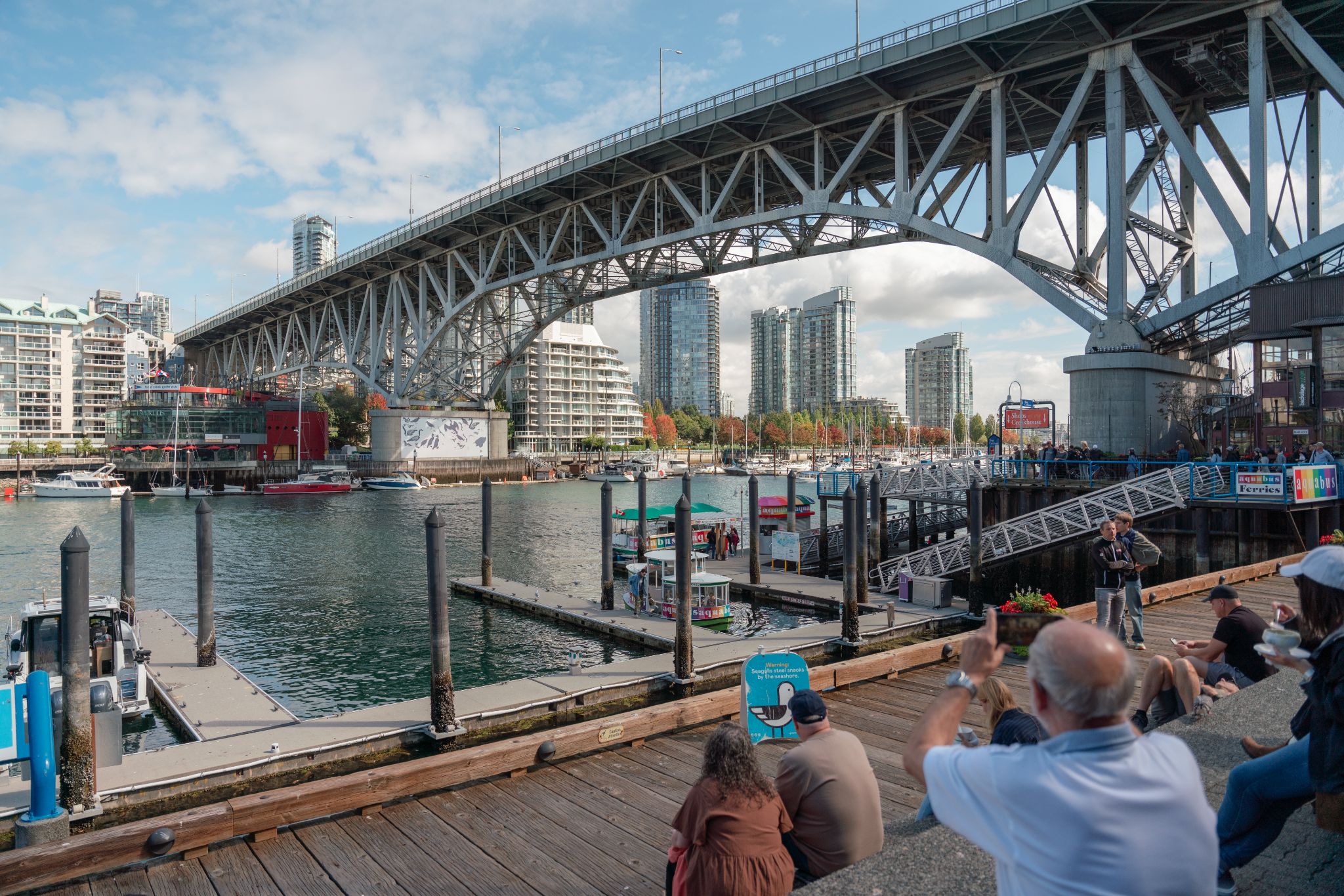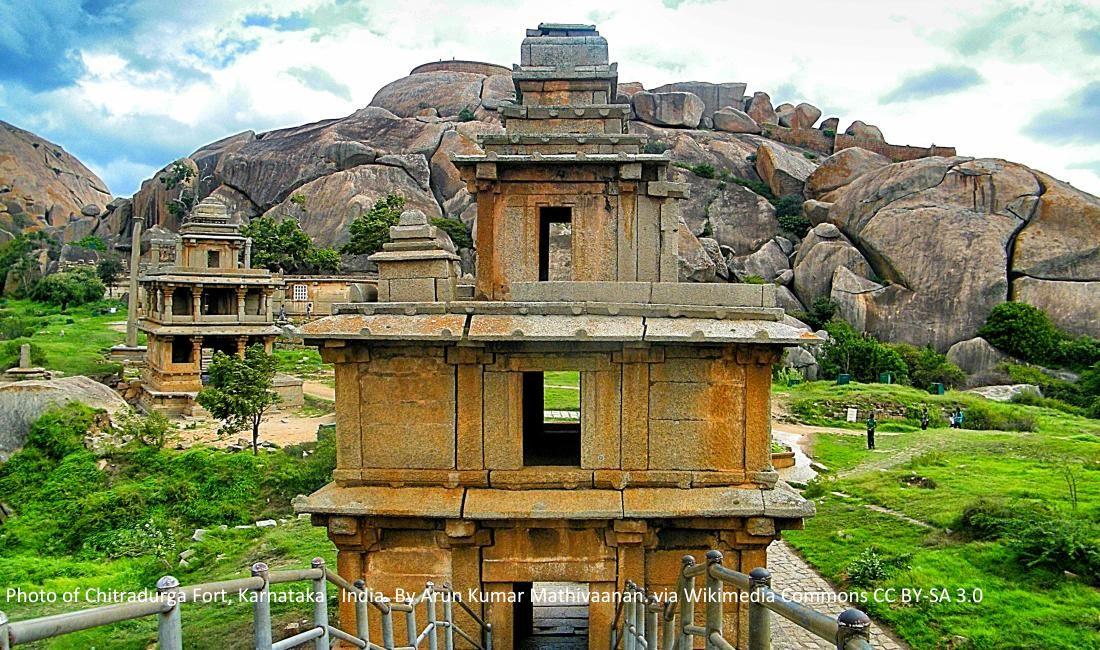Also: an amalgamation assembly and "anticipatory" democracy
Photo of Chitradurga Fort, Karnataka - India. By Arun Kumar Mathivaanan. via Wikimedia Commons CC BY-SA 3.0
SHOULD DELIBERATIVE DEMOCRACY BE LESS DELIBERATE?
Joe Mathews, the Democracy Local founder and columnist, caused a stir in Vancouver in September at the annual conference of Democracy R&D, a vital global network for democratic researchers and practitioners.
Joe’s sin: he offered a five-minute provocation in which he suggested that deliberative democracy is moving much too slowly. Inhis view, the planet is on fire, and democracy is under pressure, and local governments are struggling to solve planetary challenges that our faltering nation-states can’t meet. But advocates of deliberative processes, especially citizens assemblies, are still pursuing most one-off projects and pilots. One prominent deliberative democracy expert told me that there needed to be another 10 years of pilots and experimentation before such deliberative processes can be popularized.
Can the world wait that long?
He argued that it’s time to move faster, and focus not on putting on more assemblies, but rather enacting laws and budgets in the laws of localities and other governments all over the world. Such laws should allow for everyday people to trigger and organize such processes, instead of waiting for experts—the people at the conference—to show up and lead the processes.
There have been between 600 and 1,000 of these assemblies worldwide, depending on who is doing the counting. There are nearly one million local jurisdictions in China alone. So if deliberative processes are going to be integrated into stronger systems of local democracy, it’s well past time to let the experiment out of the lab.
For the next three days after my short talk, Joe was stopped by people praising the provocation. Let’s go faster. But he also received considerable critical feedback—that it’s more important to get these processes right first. What do you think?
Here’s the text of the short and controversial talk.
WE NEED YOUR IDEAS FOR OUR LABORATORY
Democracy International, which hosts Democracy Local site, has launched an Idea Laboratory for Europeans to offer their ideas on making the continent more democratic You can share your ideas, and vote on the ideas of others.
TWO TALES OF TWO CITIES
Dickens’ classic novel of revolutionary France, A Tale of Two Cities, never goes out of style Joe Mathews latched onto that book in his Democracy Column about Kamala Harris’ hometown of Oakland, California. People from this famously tough city, including Harris, are reaching the pinnacles of politics and other fields, even while the city itself falls into political and social crisis, with two recall votes of top officials, a corruption investigation of the city, and soaring homelessness and crime. (After Joe’s column, news broke that the city’s ethics investigator had quit, and that the city council was raising campaign contribution limits just a few weeks before the election)
Meanwhile, a thoughtful paper from K.M. Chan, at the University of Newcastle, looks at the “spillover” effects of local electoral results between cities. He shows how the unexpected victory of the political opposition in Hong Kong in 2019 had impacts on views of democracy in nearby Macau.
ONE TALE OF THREE CITIES
Democracy Next, the global NGO based in Europe and devoted to incorporating more deliberation into democracy and various human institutions, has announced three cities where it will work to democratize city planning: Vilnius (Lithuania), Esch-sur-Alzette (Luxembourg) and Kerewan (The Gambia). Here is more about this promising initiative.
THE FUTURE IS MISSING DEMOCRACY
Local governments and democracy advocates were a positive presence at the United Nations “Summit for the Future” in September, pushing the UN to consider local democracy. But almost nothing about democracy got into the “Pact for the Future,” the goals-filled planning document that is supposed to chart a path forward for humanity and the planet. This thoughtful piece from International IDEA, the Stockholm-headquartered, globaly intergovernmental organization and think tank focused on elections and democracy—outlines how to inject some smart democracy into the future pact.
ASIA DEMOCRACY CHRONICLES
Our colleagues at Asia Democracy Chronicles never stop producing great democratic journalism. Among their most compelling recent pieces are a report on the firing of a journalist in Hong Kong, and a dispatch from Khovd, Mongolia, about why Mongolian women are being welcomed into sacred rituals but not elected offices.
WORTH READING
Marjan Ehsassi’s new book Activated Citizenship delivers more than it promises, according to the Democracy Local review.
There is too much competition and conflict between advocates of different forms of democracy, writes Joe Mathews in this Democracy Local column about a thoughtful new paper from Josh Lerner of People Powered, the global democracy hub.
The New York Times reports from Maracaibo, Venezuela on what happens when failures of governance, and a national regime’s attacks on democracy, lead to the emptying out of a city.
NOEMA magazine reports from China on how striking or unusual developments—like a Swiss-style village—are being constructed in smaller cities and towns in order to integrate the hinterlands into the rest of the country.
“Citizens are being deliberately infantilized.” Democracy Next’s interview with Turkish author Ece Temelkuran.
Can cities fortify themselves, and the world against democracy? This round-up from a late spring conference on this question caught my eye—in part because of the long list of examples.
THE ADDED VALUE OF LOCAL DEMOCRACY
In 2020, local elections were postponed in Kamataka, India. This led to a “natural experiment” in local democracy appointed administrators taking over governance in villages whose elected leaders completed their terms this year.
How would elected local leaders do in governance vs. appointed administrators, in a time of crisis (the pandemic)?
Economists at the World Bank Group compared and extensively studied the different villages, and came up with fascinating results in their paper, “The Added Value of Local Democracy.”
Their conclusions were “that local democracy aligns spending more closely with citizen preferences, but these gains accrue more to men, upper castes, and other advantaged social groups. Elected leaders are more responsive to citizen needs and cause local bureaucrats to exert more effort. However, appointed administrators perform better on aspects of governance that are aligned with their specialized skills.”
To learn even more, please look at this World Bank review of 250,000 villages in India.
AMALGMATE NOW?
Amalgamation—combining different cities and local jurisidctions into one—is always a fraught democratic question. Does a strong, unified local democracy produce more for its citizens—or put more distance between its people? Victoria and Saamich, on Vancouver Island in British Columbia, have just begun a citizens assembly, with sortition, to examine the possible amalgamation of their area’s localities. You can follow the process, which runs through spring 2025, here.
EVENTS
The citizens assembly in Bend, Oregon—being facilitated and organized by a transnational coalition that includes Oregon’s own Healthy Democracy and Europe-based Democracy Next—is set to conclude the weekend of October 4-6. The assembly, of 29 people selected via sortition, is trying to devise a youth homelessness policy for Deschutes County; a nonprofit focused on that issue is the lead partner, though Bend city and Deschutes county officials have supported the year-plus-long local effort to convene it. Here is video from the opening weekend and important background on the assembly itself.
Here is a link to our democracy.community calendar of events. An upcoming highlight is an October 10 webinar comparing a referendum tool’s use in the Netherland, Ecuador, and Italy.
And here is one important democracy event not yet on that calendar. The Global Assembly of the World Movement for Democracy takes places in Johannesburg, South Africa, Nov. 20-22.
DEMOCRACY TYPE OF THE MONEY.
“Anticipatory” democracy, long associated with Alvin Toffler and Japanese future assemblies, is getting renewed attention. How can you create democratic systems to govern the future? Policy Commons provides an overview.
DEMOCRACY QUOTE FOR THE ROAD
For, if liberty and equality, as some persons suppose, are chiefly to be found in a democracy, they will be attained when all persons alike share in the government to the utmost.
—Aristotle
LINKS TO LOCAL DEMOCRACY RESOURCES AND PARTNERS
Democracy International and democracy.community
Federation for Innovation in Demcoracy-Europe and FIDE North America
United Cities and Local Governments
International Observatory of Participatory Democracy
ASU Participatory Governance Initiative
Taiwan Foundation for Democracy
National Civic League’s Center for Democracy Innovation
Journal of Deliberative Democracy
Local Government Information Unit
SUBSCRIBE TO THIS NEWSLETTER
By emailing the author at joemmathews@gmail.com, or signing up here.




